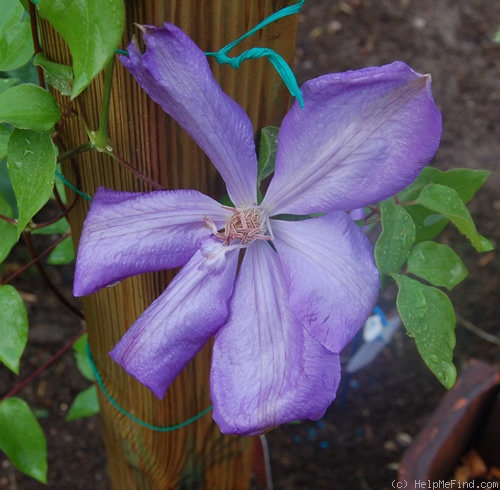'Mrs. Cholmondeley' clematis Description

Photo courtesy of marcir
HMF Ratings:
37 favorite votes.
Average rating:
EXCELLENT-.
Class:
Early Large Flowered, Group 2.
Bloom:
Mauve and crimson. 6 to 8 petals. Average diameter 8". Single, veined bloom form. Late spring to late summer.
Habit:
Height: 10' to 12' (305 to 365cm).
Growing:
USDA zone 4b through 9b. Plant in sun or partial shade. Suitable for growing in a container. This plant blooms twice. It blooms on the previous year's growth, so resist the urge to prune it in early spring. However, if you garden in a place with cold winters, Mother Nature will more than likely prune the plant for you. It will bloom a second time on new growth.
Patents:
Patent status unknown (to HelpMeFind).
|